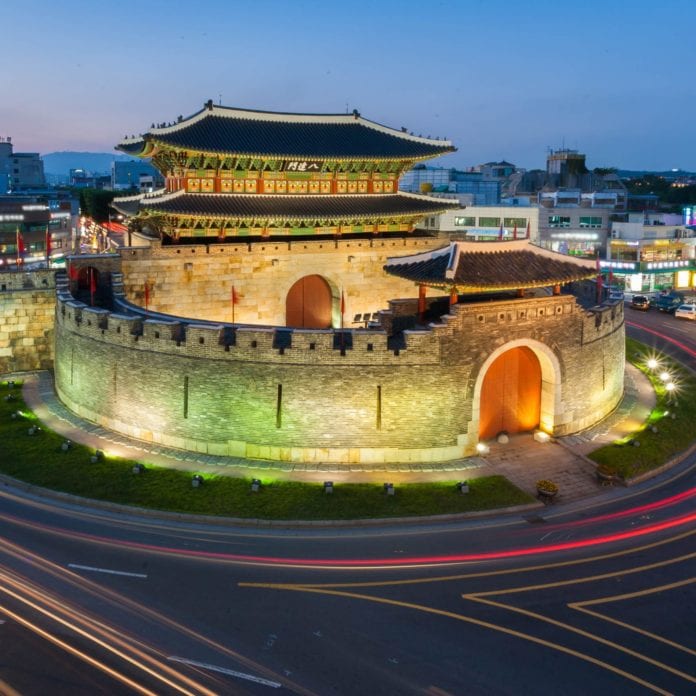The government confirmed three operators will bid for 28 blocks of spectrum in the 3.5Ghz band and 24 blocks in the 28Ghz band
The government of South Korea set the reserve price of the auction for 5G frequencies at 3.3 trillion won ($3.1 billion), according to reports by Yonhap News Agency.
The reserve prices for the auction were determined by the Ministry of Science and ICT during a public hearing ahead of the process, which is scheduled for June. The country’s mobile operators SK Telecom, KT Corp. and LG U+ took part in the public hearing.
These three telcos will compete for 28 blocks of spectrum in the 3.5Ghz band and 24 blocks in the 28Ghz band.
The government also confirmed that minimum bidding price for the 3.5Ghz blocks will be 2.65 trillion won, while for the 28Ghz blocks will start at 621.6 billion won.
In 2016, the opening price for the 4G spectrum auction was set at 2.6 trillion won.
Operators can start using the 5G frequencies in December, with the 3.5GHz band covering a ten-year period and the 28GHz band a five-year term.
Earlier this month, South Korean telcos has announced plans to share the costs for the deployment of a nationwide 5G network in the country.
The initiative, which is expected to generate savings of nearly 1 trillion won, reportedly will be carried out by local telcos SK Telecom, KT, LG U+ as well as broadband operator SK Broadband. This shared infrastructure projects had the main aim of avoiding redundant investment in 5G deployments, according to officials from the Ministry of Science and ICT.
Last month, KT Corp. confirmed plans to launch its commercial 5G network by March 2019. Oh Seong-mok, president of KT’s network business division, said that the firm’s 5G commercial offering will provide nationwide coverage.
KT’s 5G rollout will not be based on the Fixed Wireless Access (FWA) strategy currently being pushed forward by U.S telco Verizon, the KT executive said. The country’s second largest telco recently completed a 5G trial during the Winter Olympics Games, which took place in the city of PyeongChang February 9-25. During the PyeongChang Games, KT Corp. provided five 5G-driven visual technologies — sync view, interactive time slice, 360-degree virtual reality live broadcasting, omni-point view and a 5G connected bus.
During a keynote presentation at Qualcomm’s 4G/5G Summit, which took place in Hong Kong in October 2017, KT’s SVP of Network Strategy YongGyoo Lee said that the telco’s 5G deployment plans initially stipulate the use of 28 GHz spectrum for urban hot spots and 3.5 GHz band for urban and rural areas. Through the utilization of these frequencies, KT will be in a position to cover a wide range of use cases such as smart cities, 4K/8K cameras, remote medical services, drones, smart factories and public safety, the executive said.

